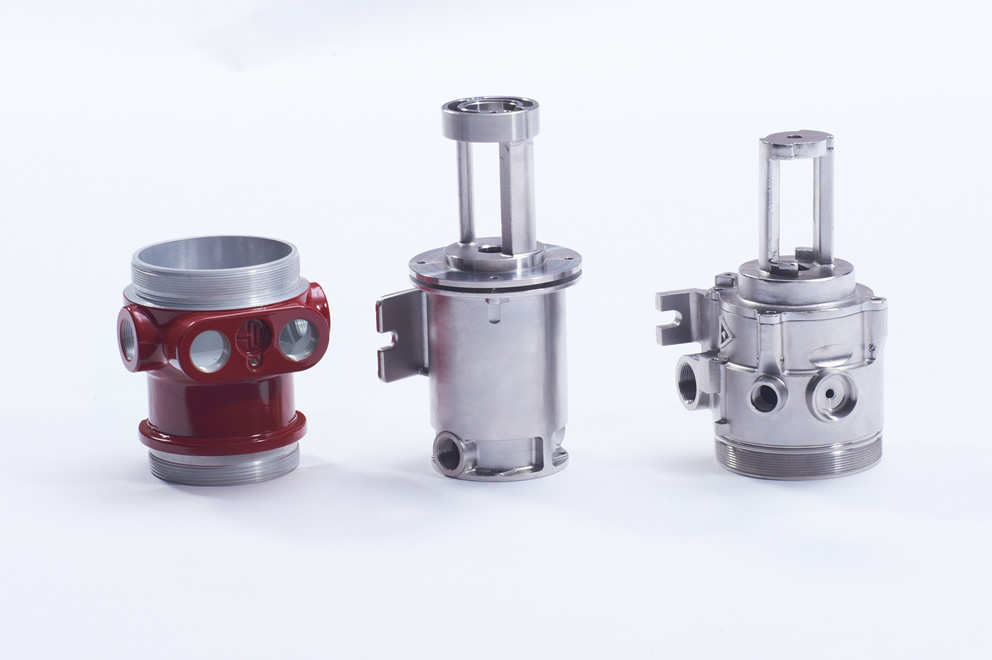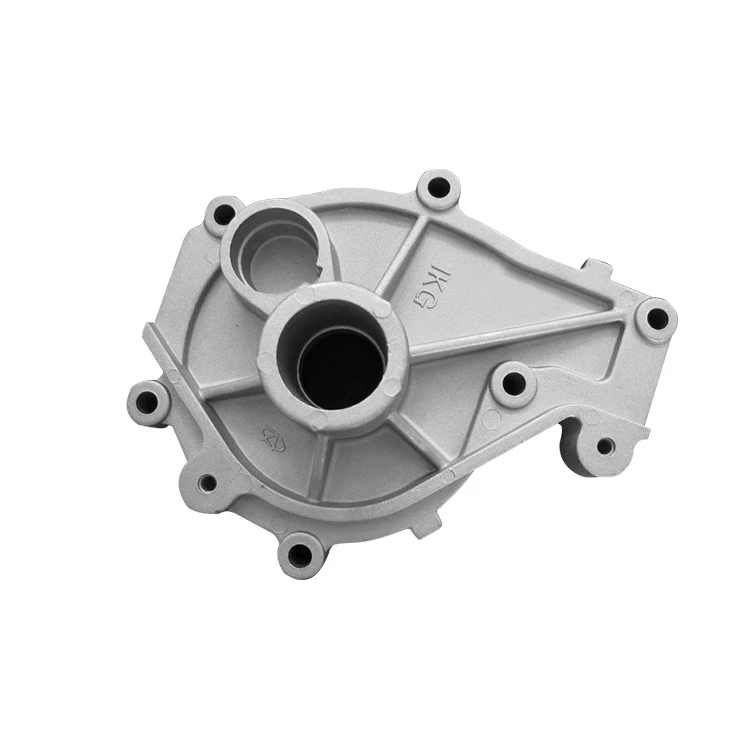The Future of Aluminum Foundries: Patterns and Advancements Shaping the Sector
The light weight aluminum foundry market is undergoing substantial improvement. Secret trends highlight the importance of sustainability and performance. Developments in clever production and automation are ending up being widespread. Foundries are increasingly focused on using recycled products. This change increases concerns regarding future methods and technologies. Just how will these changes effect manufacturing approaches and market dynamics? The solutions might redefine the industry landscape in unforeseen methods.
Improvements in Smart Manufacturing Technologies
As the light weight aluminum shop market progresses, innovations in smart manufacturing modern technologies are becoming increasingly vital for boosting efficiency and effectiveness. The combination of automation, expert system, and the Net of Things (IoT) is changing standard foundry operations. These innovations enable real-time monitoring of procedures, enabling for immediate modifications that maximize result and minimize waste.
Furthermore, machine discovering formulas assess production information to identify patterns and anticipate upkeep needs, minimizing downtime. Robotics are progressively utilized for repeated jobs, releasing proficient workers to concentrate on more complex difficulties. Additionally, electronic twins-- online models of physical processes-- promote simulations that can improve design and functional methods.
The fostering of these clever manufacturing modern technologies is driving competitive advantages in the aluminum foundry market. By streamlining operations and boosting decision-making capacities, factories can fulfill growing market demands while preserving top quality standards. The future of aluminum shops is indisputably linked to these technical technologies.
Accepting Eco-Friendly Products and Processes
The light weight aluminum foundry industry is increasingly concentrating on environment-friendly products and procedures to boost sustainability. This shift includes the fostering of sustainable material sourcing, energy-efficient manufacturing methods, and reliable recycling and waste management strategies. By incorporating these practices, factories aim to decrease their ecological impact while keeping competition out there.
Lasting Material Sourcing
Exactly how can light weight aluminum shops boost their sustainability initiatives? Sustainable material sourcing has actually arised as a necessary technique in attaining this goal. By prioritizing recycled light weight aluminum, shops can substantially minimize their ecological impact, as recycled materials call for much less energy and less resources compared to key light weight aluminum manufacturing. Furthermore, sourcing materials from accredited distributors who stick to green methods advertises liable mining and lessens ecological effect. Factories are likewise discovering alternate materials, such as biopolymers and environmentally friendly layers, to enhance standard aluminum processes. Teaming up with stakeholders, including vendors and ecological companies, promotes advancement in sourcing strategies. Inevitably, accepting lasting material sourcing not just straightens with global sustainability goals yet likewise positions aluminum factories as leaders in ecologically accountable production.
Energy-Efficient Manufacturing Strategies
Light weight aluminum foundries are increasingly taking on energy-efficient manufacturing methods to complement their lasting product sourcing campaigns. These techniques concentrate on minimizing power consumption throughout the manufacturing process. Advanced innovations, such as induction melting and optimized spreading processes, are being applied to reduce the general carbon footprint. Additionally, automation and clever manufacturing systems enhance operational efficiency, permitting far better power administration. Factories are also exploring the assimilation of eco-friendly energy resources, such as solar and wind, to power their procedures. By prioritizing power effectiveness, light weight aluminum foundries not only reduced production prices however also align themselves with international sustainability objectives, making certain an extra environmentally accountable approach to light weight aluminum manufacturing while fulfilling the increasing need for environmentally friendly methods in the sector.
Reusing and Waste Administration
Welcoming environment-friendly products and procedures, light weight aluminum factories are prioritizing recycling and waste administration strategies to improve sustainability in their operations. By integrating closed-loop systems, these facilities are minimizing waste and making best use of source effectiveness. Scrap aluminum, a readily offered material, is being recycled on-site, significantly minimizing the demand for virgin products and decreasing power intake. Advancements in arranging and processing innovations better assist in the recycling of aluminum, making sure that even contaminated products can be repurposed efficiently. Additionally, factories are adopting lasting techniques such as decreasing hazardous waste and promoting making use of eco-friendly materials for packaging. This dedication to recycling not only reduces environmental impact however likewise improves the financial feasibility of light weight aluminum shops in an open market.
The Duty of Automation and Robotics
Automation and robotics are progressively transforming the light weight aluminum factory market, significantly improving production effectiveness. By integrating sophisticated modern technologies, shops can reduce labor costs while simultaneously boosting security criteria for their workforce. This shift not just improves operations however also positions the sector for lasting development in a competitive market.
Boosted Manufacturing Effectiveness
Reinventing manufacturing procedures, the assimilation of advanced robotics and automation technologies has actually ended up being a foundation for aluminum factories looking for enhanced efficiency. These technologies simplify operations, minimize cycle times, and boost item high quality by decreasing human error. Automated systems can check assembly line in real-time, enabling for immediate adjustments that optimize result. Furthermore, robotics facilitate the handling of harmful products, making certain more secure functioning settings while raising throughput. Anticipating upkeep technologies likewise add to performance by expecting equipment failures, consequently minimizing downtime. Consequently, aluminum factories can accomplish higher uniformity in their items while reacting more swiftly to market demands. This embrace of automation is setting a new requirement for performance and operational excellence within the market.

Reducing Labor Prices
The shift in the direction of advanced robotics and automation in aluminum factories not only boosts manufacturing Our site effectiveness yet also plays a considerable role in minimizing labor costs. By integrating automated systems, factories can minimize the reliance on manual labor, which usually includes high incomes and training expenditures. Robotics streamline repeated jobs such as putting, molding, and completing, enabling a greater result with fewer personnel. This technological change not just reduces labor-related costs yet additionally enhances uniformity and high quality in manufacturing. In addition, automation can run all the time, optimizing operational hours without the connected costs of overtime or shift differentials. Consequently, light weight aluminum foundries can accomplish considerable savings while preserving competitive prices in an evolving market landscape.
Improving Safety Requirements
While standard light weight aluminum foundry procedures often reveal employees to dangerous settings, the assimilation of robotics and automation significantly enhances security standards within the market. Automated systems can do risky jobs, such as liquified steel handling and heavy lifting, minimizing human direct exposure to dangerous conditions. In addition, robotics can run in poisonous environments and severe temperatures, properly decreasing the risk of injury. Advanced checking innovations and synthetic intelligence assurance real-time security analyses, allowing for immediate actions to prospective dangers. Automation improves process, minimizing the chance of crashes created by human error. Consequently, the fostering of these technologies not only enhances security yet likewise cultivates a more efficient and effective workplace in light weight aluminum foundries.
Enhancing Power Effectiveness in Manufacturing
As light weight aluminum shops look for to maintain competition in an advancing market, boosting power performance in production has become a crucial emphasis. By embracing sophisticated technologies such web link as high-efficiency melting heaters and automated temperature controls, foundries can especially minimize power usage. Carrying out real-time tracking systems enables for accurate tracking of energy use throughout the manufacturing procedure, enabling fast adjustments to maximize performance.
Furthermore, moving to alternate energy resources, consisting of renewable options, can even more lower the carbon footprint. The combination of energy recovery systems, which redeem waste heat for reuse, is ending up being progressively usual. Training employees in energy management techniques guarantees that every person associated with the production procedure is mindful of power use.
These efforts not only reduced operational expenses yet also line up with worldwide sustainability objectives, placing aluminum foundries as responsible gamers in the sector while boosting their general competitiveness. - Aluminum Casting Company
Innovations in Recycling Light Weight Aluminum
Technologies in reusing aluminum have actually acquired energy together with efforts to boost energy performance in manufacturing. The aluminum market has actually welcomed innovative modern technologies that improve the reusing process, reducing energy consumption and environmental impact. Strategies such as hydrometallurgy and new sorting innovations improve the extraction of aluminum from scrap, improving yield prices and making certain greater high quality recycled material.
The development of closed-loop recycling systems allows shops to reuse light weight aluminum without considerable degradation in quality, making the procedure much more sustainable. Developments in logistics and collection, including boosted tracking systems and automated sorting, have actually additionally played a crucial role in enhancing the effectiveness of aluminum recuperation. These advancements not only add to a circular economic situation yet additionally help mitigate the carbon impact related to aluminum production. As the demand for sustainable practices grows, these technologies position the aluminum factory reference market as a leader in accountable resource monitoring.
Reacting to Market Needs and Customer Trends
Adaptability has become a foundation for light weight aluminum factories replying to progressing market demands and customer patterns. As sectors significantly prioritize sustainability, aluminum foundries are moving in the direction of green practices, consisting of improved recycling procedures and lowered carbon impacts. This shift aligns with customer choices for eco liable products, driving shops to introduce their offerings.
Additionally, the surge of lightweight products in aerospace and automobile markets demands advancements in light weight aluminum alloys and casting strategies. Foundries are buying research study and growth to produce high-strength, light-weight parts that satisfy rigid efficiency criteria.
Modification has gained grip, with customers seeking tailored remedies. Aluminum foundries are leveraging advanced manufacturing innovations, such as 3D printing, to fit specific client requirements effectively. This responsiveness not just pleases consumer needs however additionally positions light weight aluminum shops competitively in a dynamic market landscape, ensuring their importance in an ever-changing commercial setting.

Frequently Asked Questions
Just How Do Aluminum Foundries Influence Citizen Economies?
Light weight aluminum shops substantially affect local economic climates by creating jobs, stimulating demand for neighborhood providers, and adding to neighborhood development. Their operations commonly cause boosted tax profits, which can fund essential civil services and infrastructure improvements.
What Are the Security Regulations for Aluminum Shop Employees?
Safety and security regulations for aluminum factory workers consist of obligatory individual safety equipment, appropriate air flow systems, regular training on unsafe products, and adherence to standards established by job-related health and wellness administrations to minimize risks and guarantee employee safety and security. - Precision aluminum casting
Exactly How Does Light Weight Aluminum Recycling Affect Global Supply Chains?
Aluminum recycling considerably lowers need for resources, improves source performance, and stabilizes costs. This shift impacts worldwide supply chains by promoting a round economic climate, promoting sustainability, and making sure a more resistant sector in rising and fall markets.
What Occupation Opportunities Exist in the Light Weight Aluminum Factory Sector?
Various job chances exist in the light weight aluminum shop industry, consisting of duties in design, high quality control, production management, and research and development. Competent labor settings such as mold and mildew manufacturers and equipment drivers are also sought after.
Just How Do International Profession Policies Influence Aluminum Foundries?
International trade plans substantially influence aluminum factories by influencing import tariffs, supply chain characteristics, and market accessibility. These variables can influence functional expenses, competition, and total productivity within the worldwide light weight aluminum manufacturing landscape.
By prioritizing recycled aluminum, shops can considerably decrease their environmental impact, as recycled materials require less power and fewer sources compared to primary light weight aluminum production. Aluminum foundries are significantly taking on energy-efficient manufacturing techniques to match their lasting product sourcing initiatives. Automation and robotics are progressively changing the light weight aluminum shop sector, significantly improving production effectiveness. The shift towards advanced robotics and automation in aluminum factories not only boosts production performance yet likewise plays a significant duty in minimizing labor prices. As aluminum factories seek to maintain competition in a progressing market, improving energy performance in production has actually arised as a vital focus.